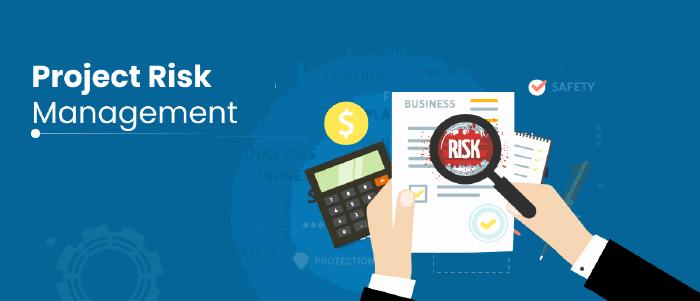
September 25 2023
7 min read

Sep
A project’s successful completion and execution depend on certain vital persons. Project managers, coordinators, sponsors, project teams, stakeholders, and suppliers are mainly responsible for accomplishing a project.
In this blog, we will discuss the roles and responsibilities of a project sponsor in detail.
A project sponsor offers monetary resources for a project. They are a supportive pillar for the project managers and teams.
They have the authority and power to provide, and fund required resources for the successful completion of the project. Also, they are entitled to make strategic decisions for the positive outcome of the project. The project sponsors guide the teams while the project is in progress and eliminate any obstacles.
A project sponsor can be an individual or an entity within the organization. Usually, a senior executive or a high-profile stakeholder is assigned the project sponsor role. Who becomes a project sponsor depends on the organization’s size and the project type.
For example, larger organizations may have a CEO, a senior executive, or a vital stakeholder who can take up the sponsor role. In comparison, smaller organizations have the CEOs taking up the responsibility. Sometimes, when an outward stakeholder initiates a project, the client can be the sponsor.
Also Read: How to manage stakeholder perceptions?
This section of the blog will provide insight into the roles and responsibilities of a project sponsor. Usually, the roles and responsibilities vary slightly depending on the project type or industry. Still, there are specific typical duties that every project sponsor has to oversee. Let us take a look:
A project sponsor’s key role is to select a suitable project and initiate it by keeping in mind its alignment with the company’s goals and objectives. A project sponsor is also responsible for choosing a skilled project manager and clearly defining the scope and context of the project. Securing all the necessary approvals, resources, and finances per the project’s needs is also an essential aspect that a project sponsor has to oversee.
A clear vision is necessary for successful completion. The project sponsor’s crucial responsibility is to create a project vision that aligns with the fundamentals of project management. Their role is to define the project’s scope and provide a clear picture of what is expected to be achieved through the project within a time frame and a pre-decided budget.
A project vision provides a direction in which the project can progress and help the project teams stay focused.
A project manager, as discussed earlier, is an executive or stakeholder of high stature, therefore having the authority to provide all the resources needed for a project. Whether finances, personnel, technologies, machinery, equipment, or other facilities, a project sponsor must meet the requirements and provide resources accordingly.
For example, if the project is a large-scale construction of an IT park, then a project sponsor’s role would be to make arrangements for enough financial resources to ensure a smooth supply of skilled workers, construction materials, heavy equipment, machinery, and other safety commodities for the construction workers.
Since a project sponsor is responsible for initiating a project, it is evident that all essential and final decisions are also on their shoulders. A project manager is given the authority to make many decisions, but the project sponsor must complete the last call for certain essential aspects.
For example, positive risks that drive innovation are identified at the project manager level, but the project sponsor decides which bets will be accepted and managed. Similarly, the project sponsor takes the final call for a change in the project’s scope and prioritization of stakeholders. Just like project initiation, termination of the project is also a decision that only a project sponsor can make.
While project managers identify and prioritize stakeholders, sponsors can advise on which stakeholders to prioritize based on their influence over the project. They establish communication channels to manage stakeholders and ensure they are updated on time to avoid clashes.
Though minor disagreements can be resolved at the project manager level, the project sponsor steps in case of complicated issues.
A project sponsor must clearly state and manage stakeholder expectations while considering the organizational goals and objectives. They are crucial in establishing a positive relationship with the stakeholders and seeking their support throughout the project’s lifecycle.
During the entire lifecycle of a project, few crises are inevitable. The project sponsor is responsible for communicating the crisis level to the stakeholders and explaining its impact on the project and the recovery plan.
Keeping the stakeholders calm and restoring their confidence in the project is the responsibility of a project sponsor.
If the crisis becomes challenging at the project manager level, a project sponsor must escalate the matter to higher authorities and seek support. A project sponsor then closely works with the project team to develop a recovery strategy aligning with the organizational values. The long-term impact on the project’s goals is also assessed, and plans are designed to diminish future threats.
Timely assessing and reviewing the project’s progress is essential to keep the project on track. A project sponsor guides the project manager and the project teams and helps them overcome obstacles.
A project sponsor determines Key Performance Indicators (KPIs) during the project’s initiation. These are regularly monitored by the project sponsor at different stages of the project. The project manager submits reports on project status to the project sponsor, mentioning the milestones achieved and whether the deliverables follow the timeline.
Via regular meetings and emails, the project sponsor monitors the budget, manages stakeholders, mitigates risks, reviews the need for a change of scope in the project, and oversees whether expected outcomes and profits are realized at the end of the project.
Based on the above discussion, it might seem that a project sponsor’s role is similar to that of a project manager. Just a project manager differs from a project coordinator, a project sponsor also has diverse roles and responsibilities. Well, there are certain areas where there might be an overlap, but both are complementary to each other.
A project sponsor initiates a project and sets the scope for the project. They provide constant support and direction to keep the project on track. The project sponsor must strategically align the company’s goals and objectives with the project’s scope.
A project manager abides by the range set by the project sponsor and plans the project accordingly.
A project sponsor is responsible for securing funds and providing the necessary resources.
In contrast, a project manager allocates those resources mindfully and focuses on the successful execution of the project within the budget and timeline set by the project sponsor.
A project manager oversees the day-to-day activities and works closely with the project team to achieve the desired goal. They guide the project teams, manage resources, delegate tasks, track daily progress, and remove obstacles. They are in charge of the smooth running of all the operational activities.
On the other hand, a project sponsor is not involved in the daily activities. They focus on the overall picture and see to it that the project is beneficial for organizational growth and aligned strategically with its objectives. They concentrate on realizing benefits and positive outcomes contributing to the organization’s success.
A project manager has the authority to identify potential risks and suggest recovery strategies. The project sponsor can decide which risks to address and escalate the matter to higher authorities. A project sponsor makes a final call on whether to accept changes in the project’s scope as suggested by a project manager.
Suggested Blog: Residual risk vs secondary risk
A project manager keeps track of the daily activities, milestones, and deliverables. They regularly communicate the progress with their project teams and see that the project is executed within the given scope, time, and budget. They identify potential risks and report them. On the other hand, a project sponsor is more concerned with more significant milestones, like the project’s strategic alignment with organizational goals. They review the project periodically based on the metrics provided by the project manager.
In most cases, there isn’t much difference between a project sponsor and a project owner. The smaller projects do not usually have a separate project sponsor and a project owner. In organizations where strategic decision-making and benefits from the project relate to the same individual or entity, the project’s sponsorship and ownership merge.
In the case of larger projects or multiple projects, a project sponsor and a project owner may differ with slightly different roles. A project owner is responsible for the project’s end outcome and enjoys the final benefits of the positive result. They can make decisions and provide feedback for the project’s deliverables. They also approve the final deliverables.
A project sponsor is responsible for initiating a project, securing funds, and extending overall guidance to the project teams and the project manager. They are interested in the benefits realized at the end of the project, but unlike project owners, they do not personally benefit from it. A project sponsor’s gains from the successful outcomes and benefits realized from a project align with the organizational improvements.
Therefore, a project sponsor is an integral part of any project as they can take a final call on any changes. The article clarifies who suits a sponsor’s role in different organizations. Also, it delivers a clear concept on which spectrum the functions of a project manager, project sponsor, and project owner differ.

September 25 2023
7 min read

July 18 2023
6 min read

July 3 2023
13 min read

June 12 2023
5 min read